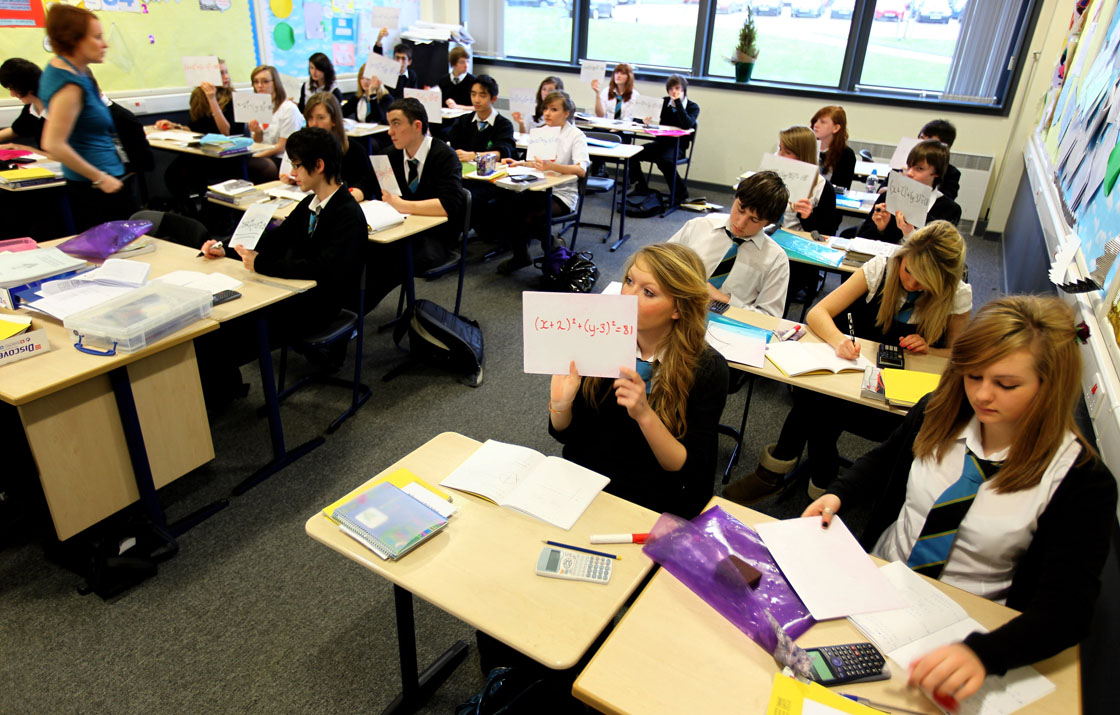Teens across the country appear sympathetic towards the burdens of the wealthy – an indication many think those problems may someday be theirs.

An exclusive analysis by Global News of a survey sampling 4,425 students spanning 400 classes between grades seven to 12 reveals some surprising sentiments. Among them, an unexpectedly large number of teens feel tax levels on the rich are too high.
The student survey, commissioned by Toronto-based non-profit Civix ahead of this week’s federal budget announcement, was followed by a Harris Decima poll of about 1,000 adults asked the same questions.
A quarter of the students surveyed said high earners, described as people making $85,414 and up, pay too much personal income tax. A quarter said the rich contribute too little.
In contrast, half of the adult respondents want the wealthy to shoulder more of the burden, while just over one in 10 said the top income brackets pay too much.
The students’ attitudes towards wealth in the survey are perhaps a surprise given the rise in angst in recent years over widening inequality, manifested most visibly in movements such as Occupy Wall Street.
While the largest number of adult respondents said tax should increase with income (45 per cent), the plurality of students said that tax should rise with pay but should also be capped at a certain point (48 per cent).
The responses correlate with a good dose of optimism from the vast majority of students about their job prospects. Seventy-five per cent say they’re at least somewhat confident they’ll find meaningful employment when they enter the workforce – and, presumably, that it will pay well.
- Gas prices surge in some parts of Canada. What’s causing pain at the pumps?
- Roll Up To Win? Tim Hortons says $55K boat win email was ‘human error’
- Ontario premier calls cost of gas ‘absolutely disgusting,’ raises price-gouging concerns
- Netflix beats subscriber targets, but revenue falls short of forecast
“It’s consistent that they think highly paid people shouldn’t pay high taxes because that’s what they think they’re going to be,” says Ron Kneebone, director of economic and social policy research at the University of Calgary’s School of Public Policy.
“I’m impressed by their optimism,” he added.
On the job front, adults don’t have as sunny an outlook, either. Less than half, or 48 per cent, of them said they were at least somewhat optimistic about finding work that interests them.
One in ten adults said they were “very confident” of finding a job that interests them, compared to 31 per cent among students.
Philip Oreopoulous, an economics professor at the University of Toronto and member of the National Bureau of Economic Research, said students tend to overestimate their career prospects – a sentiment that carries over into their expectations for education, as well.
“There is evidence that students tend to be overly optimistic when it comes to grades, education attainment and careers,” he said.
He co-authored a 2009 study that appeared in the American Economic Journal exploring educational aspirations and realities of first-year college students. And while “a very high fraction” (80 per cent) of students expect to go to graduate school, “the reality is, less than 30 per cent go,” Oreopoulous said in an e-mail.
Kneebone says the sentiments expressed in the Civix survey suggest a swing to the right among some students – a shift perhaps underpinned by the political and economic culture of the ’90s and 2000s.
At a time when today’s high-schoolers were forming their first impressions of society, the concept of “bling” was fuelling young people’s ideals and personal goals, he and other academics suggest.
“Hippie high-schoolers in the 1970’s probably would have answered the question, ‘Do you think the rich should pay more’ with, ‘Darn right, they should,’” Kneebone said. “These students are saying, ‘No, I don’t think that’s true.’”
That said, if adult responses are any guide, attitudes may well change once students have spent a few years in the workforce, where expectations will be tested.
As for corporations, students in the survey didn’t let them off the hook: Half said corporate taxes should be raised.



Comments